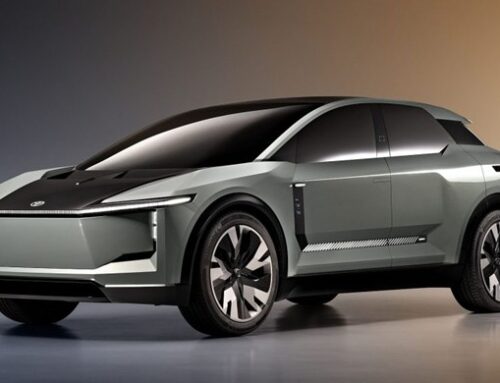What Is the Toyota Group? A Look at the Companies Behind the Brand
When most people hear Toyota, they picture cars like the Corolla, Camry, or RAV4. What many do not realize is that Toyota is part of a broader network of businesses known as the Toyota Group. This connected ecosystem spans automotive parts, electronics, services, and more.
Early in this network is a noteworthy cross-industry relationship:Toyota owns 1.93 percent of Yamaha Motor Co., Ltd. This reflects a targeted, technical alliance rather than full corporate control.
Why Toyota’s Stake in Yamaha Matters
Yamaha is known worldwide for motorcycles and musical instruments, but it also plays a vital role in performance engine design. Toyota’s ownership in Yamaha supports:
-
Development of specialized, high-performance engines, such as those used in the Lexus LFA and Toyota 2000GT
-
Collaboration on precision parts and control technologies
-
Strategic cooperation while allowing Yamaha to remain independent
This minority stake enables Toyota to access unique technical expertise without outright acquisition.
What Is the Toyota Group?
The Toyota Group is a collection of companies that collaborate closely with Toyota Motor Corporation. This includes fully-owned suppliers, partially held affiliates, and long-term partners. In Japan, such interlinked firms belong to a business structure known as a keiretsu, built on cross-shareholding, joint ventures, and shared goals.
Each member of the group contributes to Toyota’s mission—from supplying parts to providing finance and technology—forming a network that enhances innovation and resilience.
Core Members of the Toyota Group
Denso Corporation
A global automotive supplier specializing in electronics and climate systems.
-
Toyota’s largest shareholder
-
Integral to Toyota’s hybrid and electric vehicle platforms
Aisin Corporation
Produces drivetrain, chassis, and safety components for Toyota.
-
Major Toyota shareholder
-
Known for advanced mechanical systems
Toyota Industries Corporation
Originally focused on textile machinery, now a leader in compressors and materials handling.
-
Supplies parts and logistics equipment
-
Supports Toyota’s manufacturing operations globally
Hino Motors
A specialist in trucks and buses, majority-owned by Toyota.
-
Focuses on hybrid and low-emission commercial vehicles
-
Active in markets across Asia, North America, and the Middle East
Toyota Financial Services
Handles financing, leasing, and insurance for Toyota dealers and buyers worldwide.
-
Operates in over 35 countries
-
Supports customer retention and dealership growth
Additional Strategic Shareholdings
Toyota’s keiretsu extends into other key companies through minority stake holdings:
-
Subaru (20%) – Platform sharing and AWD technology collaboration
-
Mazda (5.05%) – Joint electric vehicle development
-
Suzuki (4.9%) – Cooperation in compact and hybrid vehicles
-
Isuzu, Panasonic, NTT, MS&AD Insurance – Partnerships that support software, energy storage, insurance, and commercial vehicles
Such relationships allow Toyota to remain at the forefront of innovation without acquiring full control of each partner.
Why the Toyota Group Is Effective
Toyota’s keiretsu model offers several advantages:
-
Shared innovation – Collaborative research accelerates development while reducing duplication and cost
-
Supply chain resilience – Long-term partnerships create a stable production ecosystem
-
Expert access – External partners contribute advanced skills Toyota can integrate into products
-
Scalable execution – The group structure supports fast deployment of technologies, especially in electric vehicles and sustainability efforts
This collaborative strategy has helped Toyota lead in hybrid systems, hydrogen power, autonomous driving, and global manufacturing agility.
Closing Thoughts
The Toyota Group is far more than a list of businesses—it is a carefully structured network of mutual support and long-term alignment. Toyota’s ownership in Yamaha Motor is just one example of how the company secures essential capabilities without controlling every partner outright.
This group model will remain vital as Toyota continues its shift toward carbon neutrality, smart mobility, and digital transformation. It allows Toyota to be bold in innovation while maintaining the quality, reliability, and efficiency it is known for around the world.


